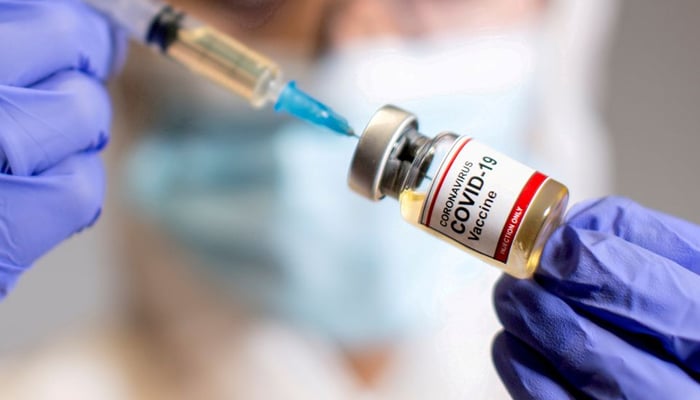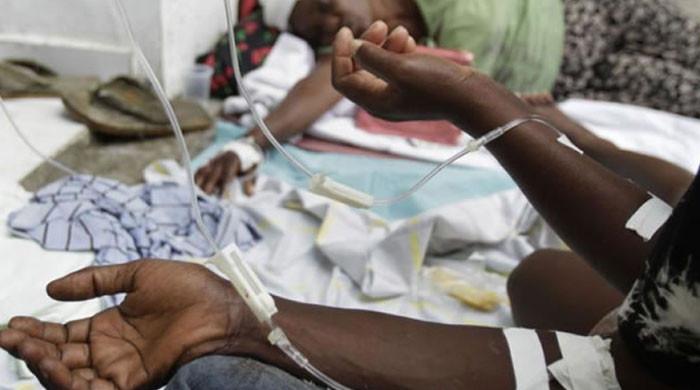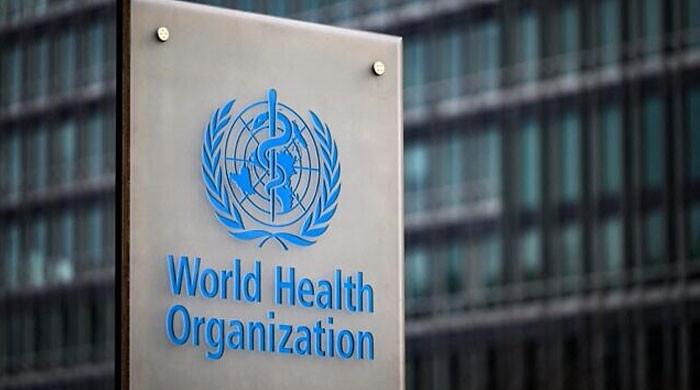World urged to prepare for better, effective COVID-19 vaccines
Such a vaccine would prevent virus from spreading to a large number of people, says Michael Osterholm
March 16, 2023

COVID-19 had infected more than 7 billion people all over the world, according to data from World Health Organisation (WHO). It started in September 2019 in China and gradually engulfed the world.
It was so contagious that it was a matter of months after the world witnessed a complete lockdown in half of 2020. People stayed home for weeks and the world came to a complete halt. It was the worst global health crisis the world has seen.
As it is said that SARS-COV2 has jumped from bats to humans, it is likely that other hundreds of viruses — that already live in animals — may transfer again and can prove to be much more contagious and lethal than this one.
Scientists expressed their concerns over a future crisis of such nature and called upon the world to build a vaccine more effective that could protect against all coronaviruses, in an interview published in USA Today.
Michael Osterholm, director of the Center for Infectious Disease Research and Policy at the University of Minnesota believed that such a vaccine would prevent the virus from spreading on a large scale.
Need for new vaccines
Scientists have underlined, that although the development of vaccines was a remarkable job, they have their limits despite their effectiveness.
Dr Bruce Gellin, chief of global public health strategy for the Rockefeller Foundation's Pandemic Prevention Institute emphasised: "more preparation for future viruses as they come to the fore."
The Rockefeller group, the Gates Foundation and the Michael Osterholm's centre are partnered and had earlier developed road maps for the prevention of diseases and outbreaks such as Ebola, Zika and influenza.
Dr Gellin said that these three organisations can set examples and encourage others to contribute to developing such modern and effective vaccines. "It is all a matter of time," he remarked.
As a vaccine is developed earlier from any possible outbreak, it would shorten the time of virus spreading from person to person as the vaccination process would start promptly.
Scientists have, furthermore, put forth a road map to execute such a plan comprising five major goals.
- Understand the virus in nature and develop a vaccine accordingly.
- Vaccines which can prove safe and lasting against all coronaviruses.
- The need to study immune responses to vaccines to accelerate the vaccine development process.
- Test vaccines on animals to gauge effectiveness.
- Achieve across-the-board support and sufficient financial assistance.
The group, as per the strategic road map, intends to establish a wide surveillance virus detection program by 2024 to quickly spot the virus and take action against it.
How to do the vaccination
The plan given by scientists underlines possible visions to enhance the effectiveness of vaccines.
Initially, people need to be vaccinated in childhood or at an adult age which boosts their immunity against coronaviruses and their variants, they suggested.
Secondly, these vaccines should be put in as a strategic reserve. If any coronavirus spreads, states must have enough stocks to deal with the initial spread so that it could be contained at its early stages.
Third can be a mix of both — routine vaccination and enough reserves to deal with an emergency situation.
The vaccines, it was emphasised, should not cost much as low-income countries would not be able to afford the stockpiles or the development of the vaccines, the highlighted.
What lies in future?
People have passed nearly two years of COVID-19 with extreme difficulty, and no one would wish to be in the situation it was during the pandemic.
Dr Gellin said the road map is put form when there is less will and fewer resources to address the challenge as compared to the pandemic time.
The suggested map has highlighted the plan of action however, it does not provide a suggestion as to who will be in charge to oversee such activities and who would supervise the operation, Osterholm said.
“But at least it can help government, philanthropists and researchers understand what is happening and what needs to happen next,” he said adding that “Everybody has a fully transparent view of what needs to be done and what's getting done – or what's not getting done."











